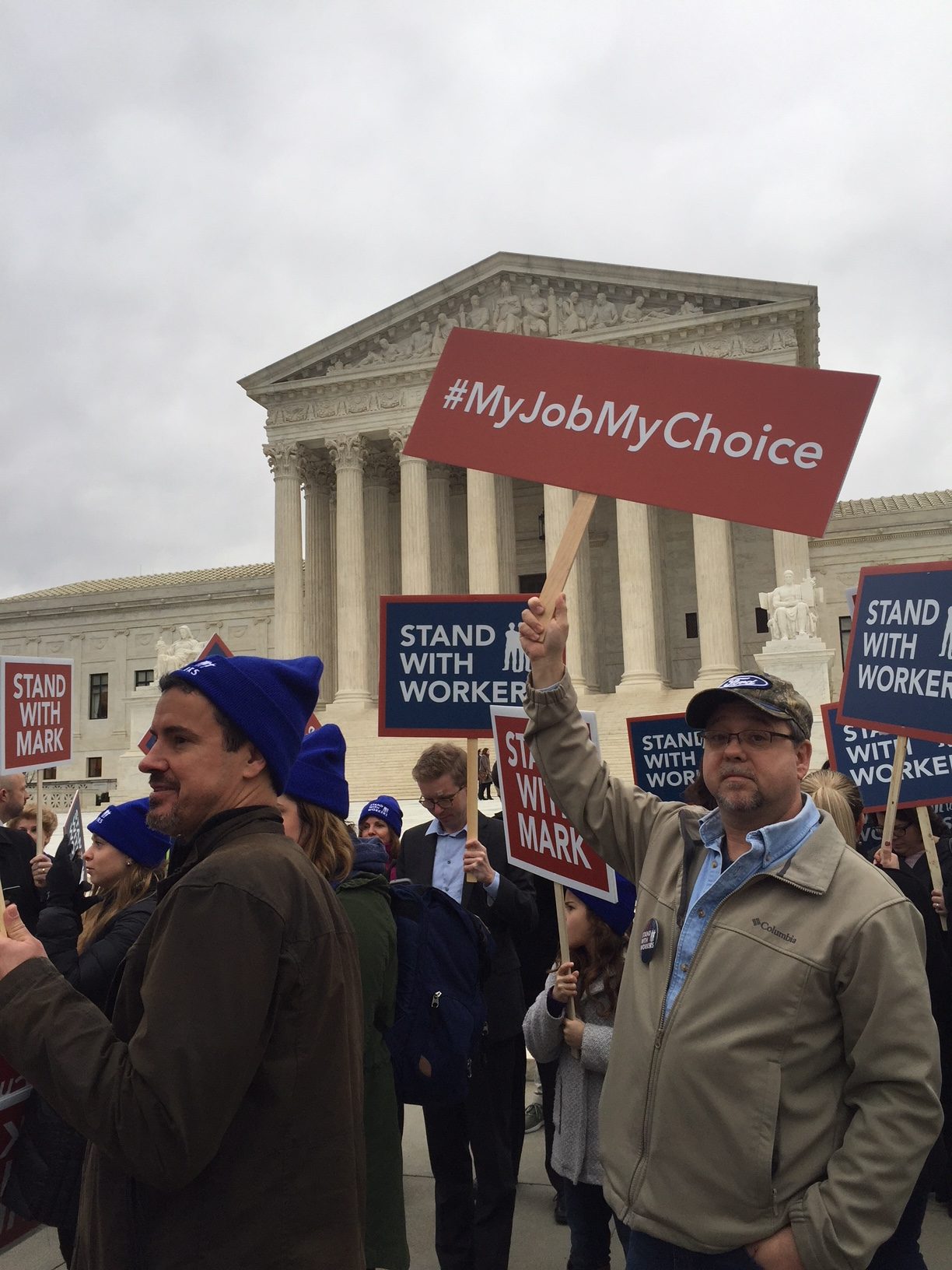Alaska Attorney General Kevin G. Clarkson issued a formal opinion on August 27 saying the Supreme Court’s Janus v. AFSCME ruling dictates the state must confirm employees have chosen to join a public-sector union through clear and compelling evidence before deducting union dues from paychecks.
He went on to say the State of Alaska cannot rely on unions to inform the state which employees have chosen to “waive their First Amendment rights” by joining the union and the state should collect yearly signed waivers from employees.
“In order to secure clear and compelling evidence of a knowing waiver, the State should also provide for a regular ‘opt-in’ period, during which time all employees will be permitted to decide whether or not they want to waive their First Amendment rights by authorizing future deductions from their wages,” Clarkson wrote.
The Supreme Court’s 2018 decision in Janus v. AFSCME ruled that public employees who did not want to be part of union could not be forced to pay agency fees to a union because it violated their First Amendment right to free speech.
However, the Supreme Court went a step further in its decision, saying that union dues deductions require “affirmative consent,” showing the employee has “opted-in” to union membership.
So far, that provision of the decision has not been strictly enforced. Many states – including Connecticut – rely on the union to inform the state which employees have chosen to join by signing a union membership card.
Connecticut Attorney General William Tong issued guidance saying the union may not “otherwise collect agency fees from a non-member, without the non-member employee’s affirmative consent,” but Clarkson’s decision goes a step further saying the state itself must obtain “clear and compelling” evidence that an employee has chosen to join a union.
In Connecticut, it is the union’s responsibility to inform the state or municipality which employees are union members and should have dues deducted from their paycheck and which employees have resigned membership. Provisions in union membership cards, in some cases, limit when an employee can stop paying fees to a designated window of time outlined on the card.
Clarkson said relying on the union for employee information is not a proper way to ensure “clear and compelling evidence” that union dues authorization was “freely given” as required by Janus, or that a new employee was properly informed of their rights to not join the union.
Clarkson said this could be problematic, particularly when union membership cards contain provisions that lock them into payments for a set period of time.
“A system that permits unions to set the terms by which a public employee waives his or her First Amendment rights and to control the environment in which that waiver is elicited does not satisfy the standards announced in Janus,” Clarkson wrote.
Clarkson recommended the state establish a new process by which the state informs a new employee of their rights and obtaining dues authorizations.
Connecticut’s compliance with the Janus decision, thus far, has settled with no longer deducting agency fees from nonmembers, but the state still relies on union officials to inform them of who has joined or resigned from union membership.
That practice is the source of at least one complaint before the State Labor Relations Board after the Town of Wallingford ceased deducting dues from two employees who wanted to resign from their union.
AFSCME Council 4 argued the town could not end dues deductions without authorization from the union.
Wallingford town council member and state representative Craig Fishbein, R-Wallingford, put forward legislation during the 2019 legislative session that would have required clear language in municipal contracts regarding employees’ rights to resign from union membership, but the bill never passed out of the Labor and Public Employees Committee.
Clarkson said employee affirmative consent documents – or “waivers” – should be reaffirmed every year to ensure that employee’s consent is “up to date,” and to protect the state against “the risk of error – in this case, unwitting violation of an employee’s First Amendment right.”
Clarkson issued the formal opinion, but the Alaskan governor and legislature will still have to make any changes to the state payroll and employee on-boarding system to implement those recommendations.

